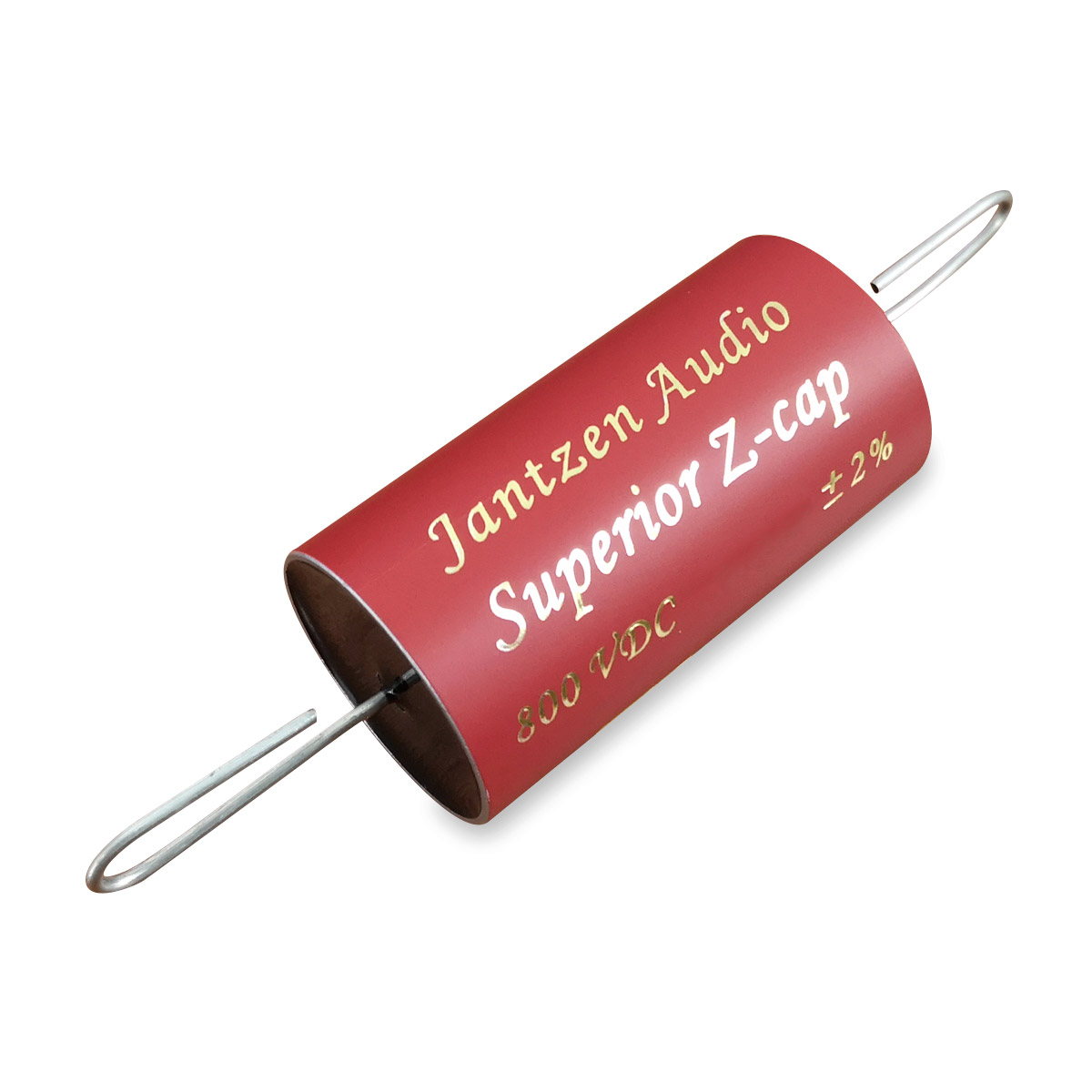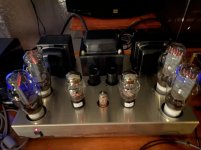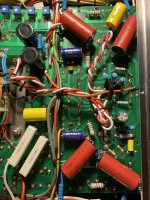My Accuphase E-303x amplifier has a 12dB/octave subsonic filter -3dB at 17Hz, essentially -0dB at 40Hz. Without the high pass in circuit the MC input to speakers is DC coupled with response -1dB at ~1Hz. When the subsonic is switched in it changes the whole character of the low end of the system, which loses it's sense of effortless, bottomless bass.
If there must be a high pass filter in a system, there should only be one with a pole near the audio passband IMHO. All other couplings should have their -3dB point ~1Hz or lower, simply to prevent excessive phase shift in the passband. I'd be using 22µF.
I certainly have no speaker modulation problems with my Dynavector XX2 on a Rega RB301 tonearm / 1972 Planar 3. I do a lot of mid-high end turntable setups and would not return a turntable to a customer that cannot play my warp test, which is fairly extreme. I've never come across a record that presents a problem for subsonic modulation in real life, except on very poorly matched turntable / tonearm / cartridge combinations that don't belong together or in a hifi system.
If there must be a high pass filter in a system, there should only be one with a pole near the audio passband IMHO. All other couplings should have their -3dB point ~1Hz or lower, simply to prevent excessive phase shift in the passband. I'd be using 22µF.
I certainly have no speaker modulation problems with my Dynavector XX2 on a Rega RB301 tonearm / 1972 Planar 3. I do a lot of mid-high end turntable setups and would not return a turntable to a customer that cannot play my warp test, which is fairly extreme. I've never come across a record that presents a problem for subsonic modulation in real life, except on very poorly matched turntable / tonearm / cartridge combinations that don't belong together or in a hifi system.
Last edited:
Couldn't get enough bass compare to SS amp so I decided to upgrade from 0.47uF to 1uF, the original design was 0.1uF. It's so good now, can get both mid/bass perfect well. The mid is so clear and i don't want to miss out of the bass, that's why I went ahead to upgrade.
By the way, one of my new coupling cap can spin both legs around 360 degree at the same time. Is it bad? I check the measurement where it shows correct 1uF. I am afraid to use it. I don't know if it's just the cover outside has nothing to do with it.

By the way, one of my new coupling cap can spin both legs around 360 degree at the same time. Is it bad? I check the measurement where it shows correct 1uF. I am afraid to use it. I don't know if it's just the cover outside has nothing to do with it.

Attachments
I bought it's 2 years ago so probably they won't take back. I think the leads soldered well together since I turned the lead on one end, then the lead other end turn as well. What would be a problem if the coupling cap fails or dies in the circuit? As long as it doesn't burn or explode, then I can try. I am afraid it blows up.
- Home
- Amplifiers
- Tubes / Valves
- Coupling caps

